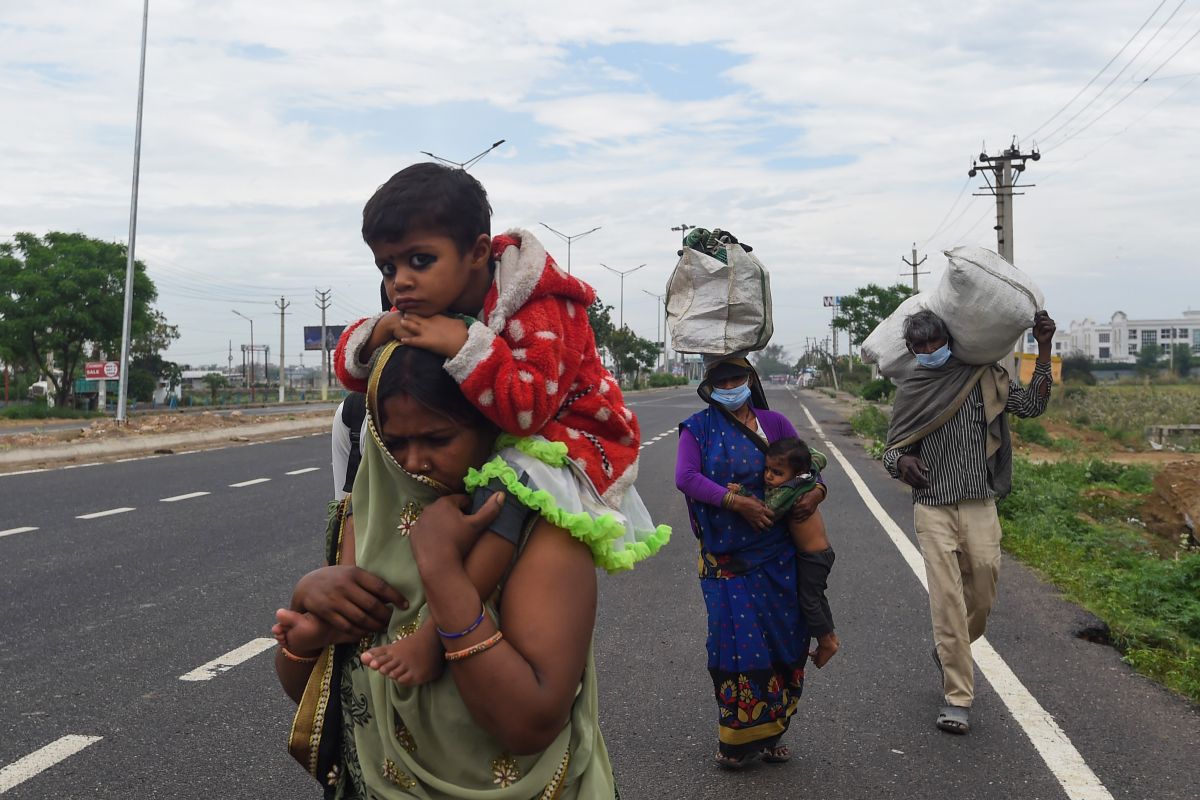The migrant labour issue has come to the fore once again, with India reporting a recordbreaking second wave of Covid cases. As numbers of patients from the first wave began dropping, the public started to believe that the worst was behind it. The government and the people let their guard down. Instead of a nationwide lockdown, it has been left to individual states to impose a lockdown this time.
As a result, migrant labour, most of whom had returned to work after the first wave, have begun to leave for their homes again, fearing a repeat of the untold miseries they faced last year. Unfortunately, meagre pay, long working hours and unsafe work conditions characterize migrant labour. According to the 2011 Census, there are 41 million interstate migrants in India. Most of them are from poorer, less educated, and socially disadvantaged communities. Despite contributing 10 per cent of India’s GDP, they are indeed a neglected lot.
Advertisement
The Labour minister said in Parliament on March 2021 that the government is currently creating a database of unorganized workers to deliver social security and other measures. Significantly, in his address to the nation this week, Prime Minister Narendra Modi appealed to chief ministers to convince migrant workers not to go back to their states.
“I appeal to the state governments to keep the migrant workers motivated and urge them to remain where they are. This assurance from the state governments will help them a lot to stay where they are,” he said. Though the lockdowns are not as severe as last time, the Prime Minister has said that these should be the last resort.
Migrant labour fears a repeat of the scenes that played out last year in places like Delhi, Mumbai, Punjab, UP and Jaipur. Many states, including Madhya Pradesh, Delhi and Punjab, have already announced several restrictions on movement. Some states are giving incentives to retain the migrant labour.
Many of the worst affected states like Maharashtra and Delhi have introduced lockdowns. No sooner did chief minister Arvind Kejriwal announce a rigorous lockdown in Delhi this week, panic set in among scores of migrant labourers. They queued up at various bus and train stations to return to their native places.
Though many chief ministers have been appealing to migrant labour to stay on, they do not trust politicians. “I appeal to you with folded hands. It’s a small lockdown, only for six days. Don’t leave Delhi and go. I’m very hopeful that we won’t need to further extend the lockdown…(the) government will take care of you,” Kejriwal assured.
The migrant labourers want to feel safe rather than sorry. Out of 1.23 crore migrant workers who returned to their home States during the lockdown last year, 67 per cent were from Uttar Pradesh, Bihar, West Bengal, Rajasthan and Odisha. In June 2020, the government announced a Rs 50,000 crore ($6.9 billion) scheme – Garib Kalyan Rojgar Abhiyan – for 25 target-driven works to create infrastructure and boost employment in 116 districts of six states for workers returning home.
Some experts feel that the measures announced are not sufficient and require careful restructuring, While the government had announced short-term policies to deal with migrant labour in 2020, what is required are long-term as well as short-term policies. One nation, one ration card is a good initiative, but an enumeration of the migrant labour population is very important.
Without knowing the size of the migrant labour population, how can anyone come up with policy solutions? Authorities should prioritise migrant labour in vaccination drives. The schemes should also focus on health, education for the children of migrant labour and their general wellbeing. A NITI Aayog draft policy in February 2021 has proposed the contours of a national policy on migrant workers.
The draft has two approaches to policy design: focus on cash transfers, special quotas, and reservation; enhancement of the agency and capability of the community to remove aspects that come in the way of an individual’s own natural ability to thrive. Perhaps the most relevant feature of the draft policy is the requirement for several Ministries to work in tandem. Opposition parties are attacking the government for not having an effective migrant labour policy.
The Congress last Tuesday demanded financial assistance for migrant workers, with former party chief Rahul Gandhi asserting that it is the responsibility of the central government to put money into their bank accounts. While the states must get the migrant labour back, a comprehensive legal framework will go a long way towards helping migrants.
While the return of migrant labour is critical for the country’s rapid revival post-Covid, they should get the respect they deserve as they are critical to rebuilding the economy. The states, as well as the Centre, have the responsibility of ensuring the welfare of migrants.
